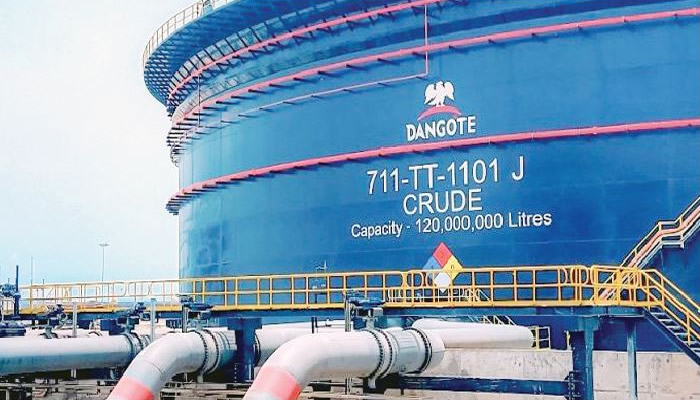The Dangote Refinery is gearing up to reach full production capacity, marking a major milestone for Nigeria’s energy sector. However, the company has yet to disclose where it will source the crude oil needed to sustain operations, raising questions about supply stability.
The $19 billion refinery, one of the largest in the world, has been gradually ramping up operations and recently began supplying petroleum products to the Nigerian market. Once fully operational, it is expected to refine up to 650,000 barrels of crude per day, significantly reducing Nigeria’s dependence on imported fuel.
Despite this progress, uncertainty lingers over whether the refinery will secure a steady supply of Nigerian crude or if it will rely on imports. The Nigerian National Petroleum Company (NNPC) had previously agreed to supply crude to the refinery, but details of the arrangement remain unclear. With global crude prices fluctuating and domestic supply challenges persisting, securing a reliable source will be key to the refinery’s long-term success.

Industry analysts note that Nigeria’s crude allocation policies and ongoing disputes between oil producers and refiners could influence Dangote Refinery’s operations. If local crude supplies prove unreliable or expensive, the refinery may have to source crude from international markets, potentially affecting costs and fuel prices.
For now, the refinery continues its phased rollout of refined products, including diesel and aviation fuel. While stakeholders remain optimistic about its impact on Nigeria’s fuel market, the question of crude supply remains unanswered, leaving room for speculation on how the refinery will navigate this crucial challenge.
Support InfoStride News' Credible Journalism: Only credible journalism can guarantee a fair, accountable and transparent society, including democracy and government. It involves a lot of efforts and money. We need your support. Click here to Donate
